THERE are defeats that hurt more than the others. For the national basketball team, there's the 1989 loss in the Southeast Asian Games in Kuala Lumpur - the Philippines' only loss in a SEAG basketball final - and, most recently, the winless campign of Gilas Pilipinas in the 2019 Fiba World Cup in China.
Those debacles, as they are called, are often followed by widespread outcries, mostly because basketball is almost a religion in this nation. Then the self-examination follows, followed by mostly band-aid solutions. You know, cosmetic solutions from sports officials, the kind we've come to detest.
But if there's one thing that Philippine basketball can learn from history, it's that it was able to rise from deeper depths before.
One such low came in 2005 when a Philippine team preparing for SEABA that Championship in July in Kuala Lumpur as well as that November's SEA Games in Manila, lost to a Paranaque Jets team owned by actor and then Paranaque vice-mayor Anjo Yllana.
"BLACKEYE," headlined Tempo in big block words, encapsulating the enormity of the defeat and bracing for the tornado that was about to happen.
No thanks to that revolting defeat, that Philippine team was condemned as one of the worst in basketball history, especially after that single loss sparked a chain of events that led to the fall of the Basketball Association of the Philippines and a long-overdue change in the country's cage leadership.
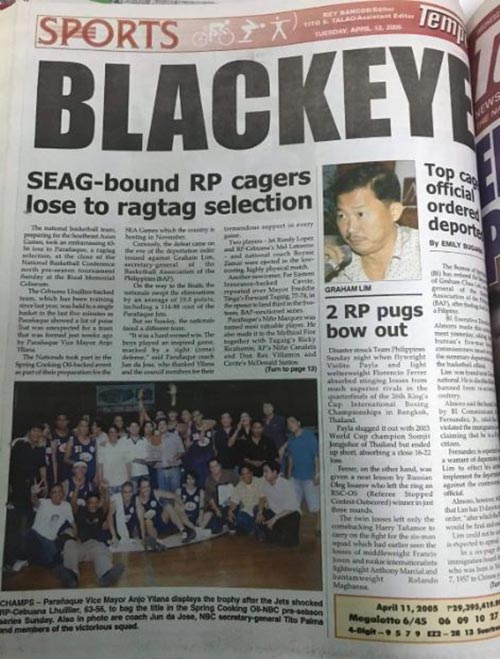
Decades later, the question still begs to be answered: Is this team really the worst in history or was it simply the victim of circumstances?
That question became relevant only because that single game was only part of a larger story, when basketball stakeholders fed up with the old BAP leadership that most if not all of them declined to make their players available to the national team.
"At that time, di pinapayagan ng UAAP at NCAA yung players. All-amateur, wala kang makukuha," said coach Boycie Zamar, who was then tasked to put together and handle that team backed by Cebuana Lhuillier.
From the onset, it was a struggle for that Philippine team to build a squad as they competed with teams from the Philippine Basketball League (PBL) to enlist players.
"They made us choose," shared Christian Luanzon, a former University of Santo Tomas player who became part of that national team.
"Right after I played my final year sa UST, I was supposed to play with Ateneo sa PBL. I had a decent and good offer, but I chose to play for the national team and why wouldn't you? I think that was the case and to support that, that's why they were asking us to commit (to the national team) than playing in between."
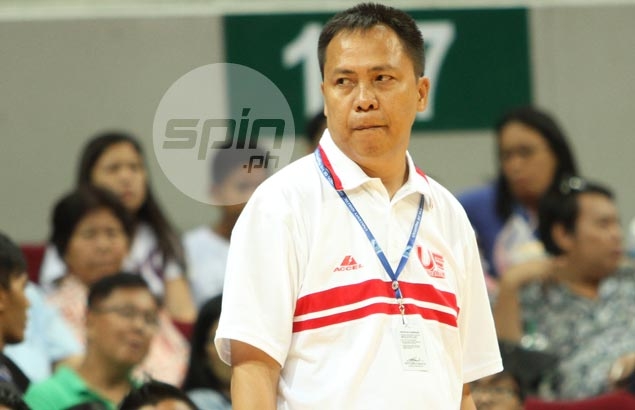
Zamar said he went through great lengths just to gather enough players to represent the country, which at that time, was preparing for the 2005 SEA Games.
"Walang gustong pumunta. Si (Samigue) Eman, nakuha namin mula sa Mindanao. Yung iba talagang pinupuntahan ko pa sa probinsya," he said.
Despite those difficulties, that team fought on.
Versatile University of the East forward Nino Canaleta spearheaded that national team, linking up with guys like San Beda's Jeff Bombeo and Ricky Calimag, UST's Luanzon and Dondon Villamin, and University of Mindanao's Eman. Veteran presence was provided by Reuben dela Rosa.
What they did not anticipate, however, was the disaster that loomed ahead.
Even before that ill-fated game against the Paranaque Jets, the RP Team has already lost two of its key players to injuries: UST guard Richie Melencio, son of former national player Tembong, to an ACL injury, and playmaker Dennis Madrid to a sprained ankle.
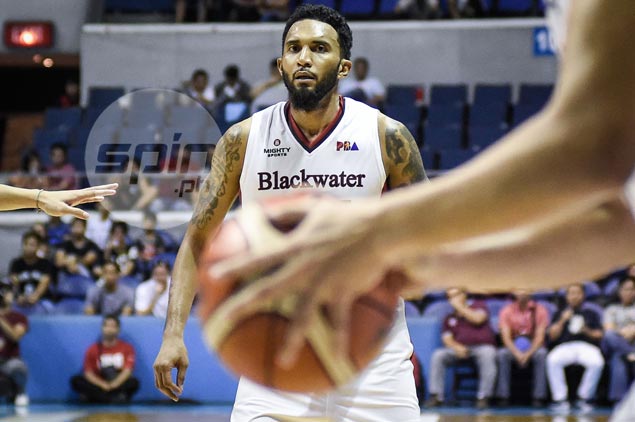
The BAP, at that time, was preoccupied with problems of its own. Its controversial secretary general, Graham Lim, was ordered deported a day after the game, a curious case since the latter was born in the Philippines and held no other nationality.
The turning point of that long-drawn leadership dispute, ironically, came in the finals of the National Basketball Conference (NBC) North pre-season tournament pitting the national team against Paranaque, which the nationals had beaten, 114-88, in a previous encounter.
This game, however, had a different tone.
Yes, celebrities like Richard Gomez and Antonio Aquitana were present in the Yllana-backed team, but the team definitely was no pushover as Nino Marquez, Mark Saquilayan, and Alex Bognot were also in the lineup.
"Malakas yung team na yun," remarked Canaleta. "In fairness sa Paranaque, talo talaga kami. May mga ex-pro at may mga naglalaro talaga."
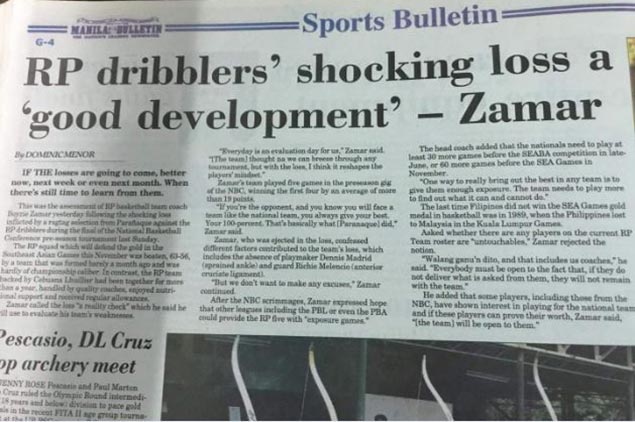
The first sign of crisis came when RP's Mel Latoreno and Jets' Randy Lopez got into a scuffle that led to both of them getting ejected along with Zamar.
"I got two technicals and I got thrown out. I was responsible for that. Yung mga assistant coach ko had to take over," said the soft-spoken mentor, leaving the reins to the late Dong Vergeire, Beaujing Acot, and Jerry Codinera.
An ominously slow start had the national team traling, 9-17, after the first quarter and by 34-35 at the half. The RP Team was able to tie the game at 53 with 5:10 left after a jumper from Bombeo, but that proved to be its last hurrah as Paranaque turned on the jets to end the game on a 10-3 salvo to put a shocking end to the tournament, 63-56.
The loss sent shockwaves through the basketball community, with then PBL commissioner Chito Trinidad calling the nationals a 'team of trash.'
"Let’s face reality, it’s a team of trash," Trinidad told the Philippine Star. "It’s a disgrace not only in international basketball, but also in our country. Nakakahiya."
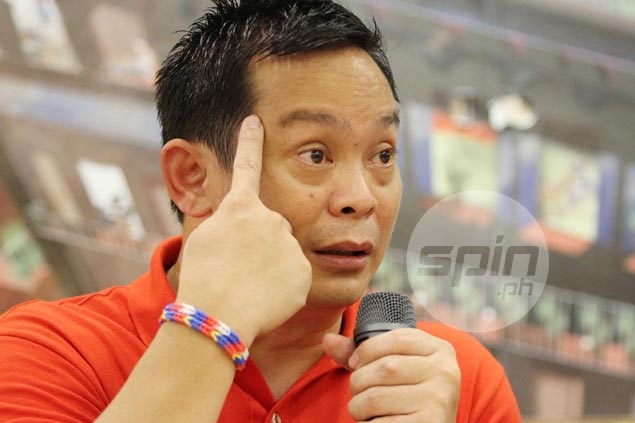
Philippine sports officials naturally panicked.
Joey Romasanta, then the vice-president of the Philippine Olympic Committee (POC), said: "Eh kung tinatalo sila ng ordinary team dito sa atin, what assurance do we have na hindi sila tatalunin ng Malaysia or Indonesia or Thailand? This is a wake-up call for them."
Zamar, however, shrugged off the loss as a timely reality check.
"[The team] thought na we can breeze through any tournament, but with the loss, I think it reshapes the players' mindset," he said then in an interview with Manila Bulletin's Dominic Menor.
Yet Zamar also knew about guillotine hanging over his head.
"Everybody must be open to the fact that, if they do not deliver what is asked from them, they will not remain with the team," he said.
True enough, just days later, he was shown the door as Chot Reyes was named to take his place.
"If you're a head coach, you'd be ready for that," Zamar said 15 years later. "Ako yung head coach, ako yung responsable for that. Alam ko na kung may mangyayari, it's always going to be my head."
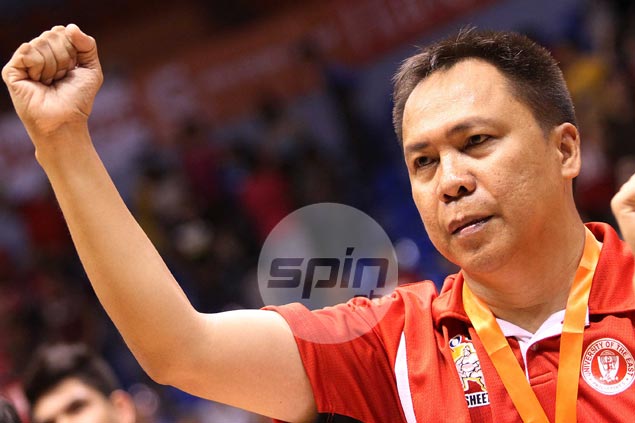
"Alam mo naman ang Pilipino. They treat basketball as a religion and everybody can be a critic on their own based on their beliefs. Wala ka naman magawa doon. It was a tuneup game at pag natalo ka, you'll always be criticized."
In the grand scheme of things, that game shifted a lot of tectonic plates.
Support soon came in, with players from the PBL and eventually, the PBA being tapped to rescue the national team. A highly touted Fil-Am forward by the name of Kelly Williams was committed to suit up.
POC president Jose "Peping" Cojuangco called for major reforms in the federation but before a new leadership could be installed, the BAP was expelled from the POC in July while the feud among basketball stakeholders led to the country being suspended by Fiba.
As a consequence of the suspension, the Philippines was forced to scrap the basketball competition in the SEA Games.
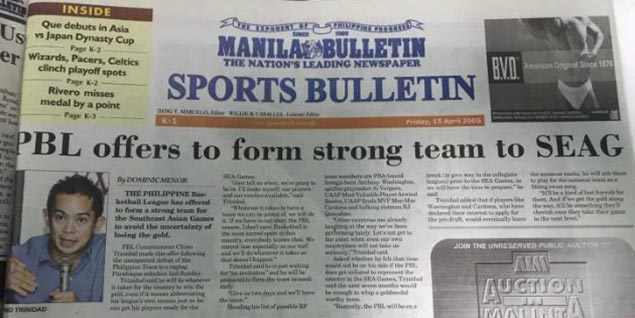
Zamar believes that the ill-fated team was a mere victim of circumstances.
"Yung nangyari sa akin, it's a political and personal persecution on a coaching point of view. Personal kasi tinamaan ang career ko dahil after ng stint ko na yun, wala nang kumukuha na any team, mapa-assistant or head coaching job sa PBA, college, o high school. I was forced to be an OFW with my coaching career," he said.
Zamar had to toil overseas, coaching in Indonesia, Malaysia, and Singapore, and even went as far as the Middle East before eventually finding his way back when his alma mater University of the East hired him in 2012.
"Hindi ako nahiya na nangyari sa akin yun. Actually, naging motivation sa akin yun to be a better person," Zamar, now an assistant coach of San Miguel in the PBA, said.
Zamar also felt bad for those players who were caught in the crossfire. "Na-deprive nila yung players. Sabi ko sa officials, kahit di na ako ang coach. Kahit magbuo ng ibang team basta lang may basketball dito," he said.
Canaleta said: "Medyo unfair kasi yung mga ibang members ng Cebuana team, mga taga-probinsya. Syempre umaasa sila na makalaro internationally at makalaro dito sa Manila, pero nadamay sila. Kawawa naman dahil hindi na natuloy yung programa."
"It was one of those times na we were caught in the middle. For us, it was bad timing," said Luanzon. "I wouldn't say that we were the sacrificial lamb, especially as young adults we didn't see it that way at that time. But looking back, you can say that everything happened for a reason."
The powers-that-be finally came together and the Fiba ban on the Philippines was finally lifted in 2007, giving birth to a new federation that we know today as the Samahang Basketbol ng Pilipinas (SBP).
[ArticleReco:{"articles":["101367","100999","99961","99957"], "widget":"More from spin"}]
Tough as that experience was, Canaleta said the team wasn't as bad or poorly prepared as it was made out to be.
"Maayos yung team na yun eh. Very organized," recounted Canaleta. "Kumpleto kami sa facilities. Talagang maayos yung management at sobrang supportive nila boss Jean Henri (Lhuillier)."
"From a financial standpoint, we had all the support from boss Jean Henri. It was really a program designed pretty much, in a sense mas unique pa sa Gilas cause we're living together. We just happened to be on the tailend. As a player, I have no regrets for that," said Luanzon.
If it was any consolation, that event, Luanzon said, became the catalyst for change that Philippine basketball needed. The irony was that the worst loss by a national basketball team turned out to be the start of something good.
"Maybe it was the start of something people don't know. If that did not happen, I think it would have driven us to the same direction," said Luanzon. "Even before us, people will just form a team in a week para lang masabi na may mabuo na Philippine team."
"At least for Philippine basketball, nagkaroon na ng direction. Ever since that happened, naging tama na yung direction ng Philippine basketball."
Source: Spin PH
0 comments: